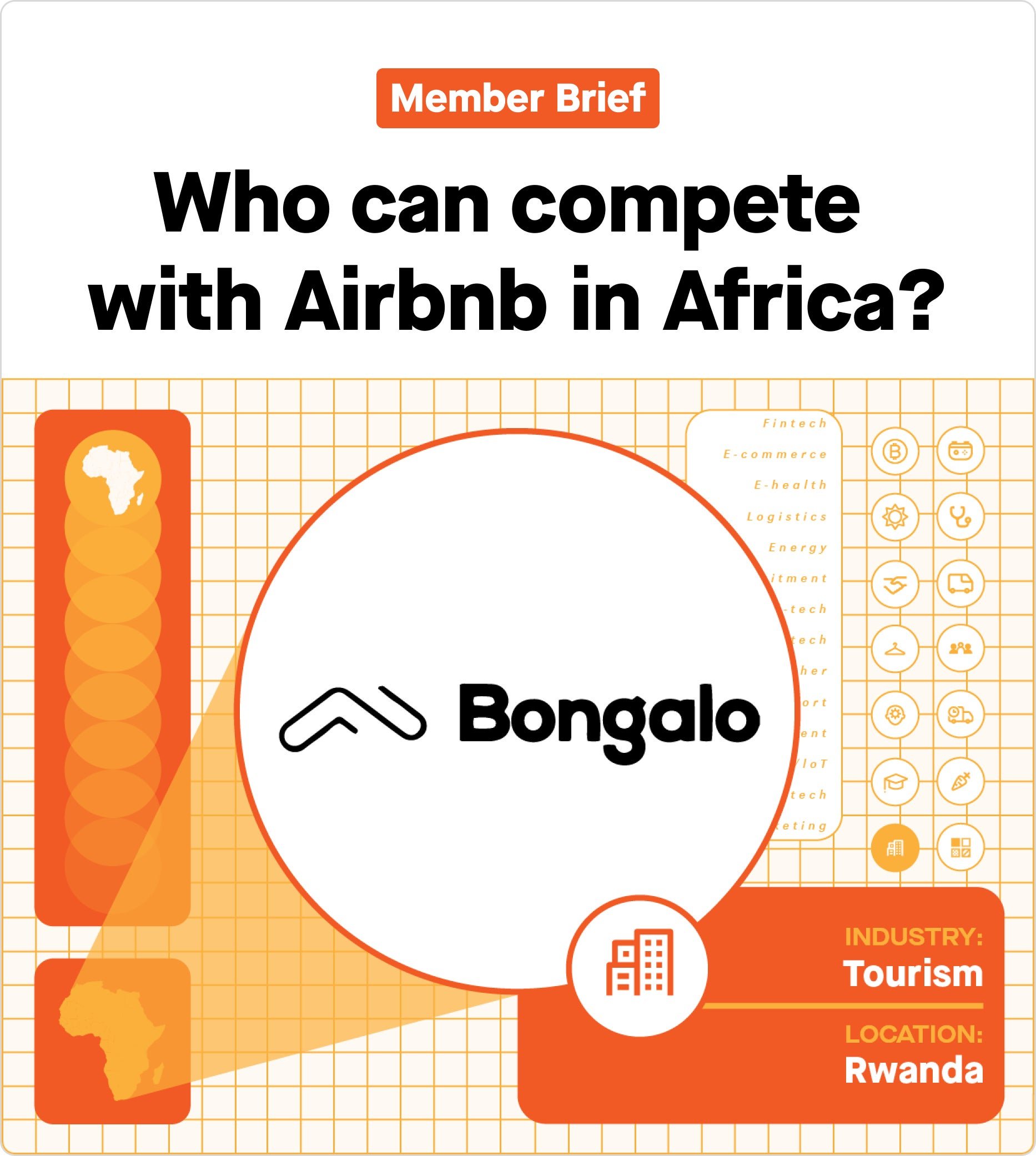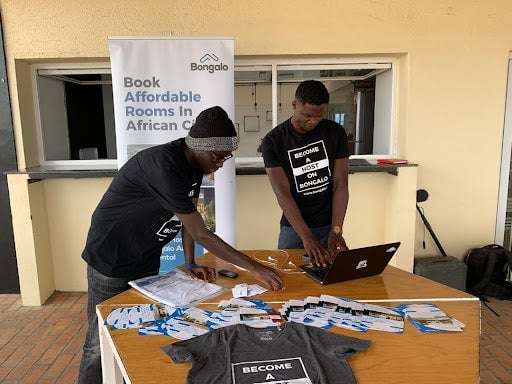✦ Who can compete with Airbnb in Africa?
Hi Quartz Africa members,



Hi Quartz Africa members,
Before the pandemic, all eyes were on the promise of Africa’s growing hospitality industry. Jumia’s 2019 Hospitality Report (pdf) highlighted travel and tourism as a leading growth driver for the continent’s economy, and the sector contributed 8.5% of GDP ($194.2 billion) in 2018, up from 7.8% two years earlier. Just a few years ago, hospitality directly or indirectly employed 24.7 million people in Africa, which was the second fastest-growing tourism region in the world, after Asia.
As covid travel advisories start to lift, that optimism is staging a comeback—particularly for travel within Africa. The continent currently has 75,000 standard hotel rooms, and Africa’s youthful and innovative population is taking advantage of increased internet access to explore new experiences. Increased urbanization, plus implementation of the African Continental Free Trade Area and the Single African Air Transport Market, stand to make intra-African travel even more fluid. Already, visa-free or visa-on-arrival policies are emerging in countries like Ethiopia, Ghana, Rwanda, and Kenya.
On the lodging front, the world’s biggest hotel chains are in a billion-dollar race to win the African market, and companies like AccorHotels—the largest hotel operator in Africa, with brands like Sofitel, Marriott, Hilton, and Hyatt—are expanding locally. In a pre-pandemic world, Airbnb had more than 130,000 listings in Africa, and counted Nigeria, Ghana, and Mozambique among its eight fastest-growing markets.
But while global players have deep pockets and big Africa ambitions, local hospitality startups still have certain advantages—especially when it comes to mobile-money payments and listing areas that lack internet connectivity.
Cheat sheet
💡 The opportunity: Africa remains an attractive tourist destination, and as covid restrictions ease, momentum is expected to build for local and international visitors. Cheaper rates, flexible payment options, and mobile-money developments will also create opportunities—especially in short-term rentals.
🤔 The challenge: All over the world, technology platforms are revamping how people pursue travel and hospitality. But Africa still has limiting infrastructure problems, including inadequate electricity supply and shaky internet connectivity. Additional challenges include a lack of skilled hospitality personnel, and difficulty attracting and retaining workers.
🌍 The road map: African startups often struggle to secure enough funding to plant a flag and expand over time. There is a need to adopt better strategies to attract VCs and convince more consumers in the African market to buy goods and services produced in Africa.
💰 The stakeholders: Airbnb is the platform most trusted by both hosts and guests on the continent. Other international players include Booking.com, Vrbo, TripAdvisor, Expedia, Homestay.com, and atraveo; while Africa-focused startups include Nwanndo, Africabookings, Viatu, and Kumba Africa.
By the digits
Post-covid figures are still forthcoming, but here’s a sense of the African hospitality sector’s potential ahead of the pandemic:
$570 billion: Estimated global market valuation of hotel travel accommodation
5.6%: Year-over-year growth in Africa’s tourism sector in 2018 (pdf)
110 million: Estimated international tourist arrivals in Africa by 2027
74%: Share of global travelers who plan their trips online
75,000: Available rooms in hotels and short-term rentals in Africa
$91 billion: Market capitalization of Airbnb, global leader of short-term rentals
The case study
Name: Bongalo
Bongalo was founded as a way to book and pay for travel accommodations using mobile money, which is increasingly popular on the continent. In many African countries, getting paid on other major platforms is far from straightforward.
“For an average host on Airbnb in Africa, they [have] one way to get paid out, which is Payoneer Prepaid Debit Card,” explains Bongalo founder Nghombombong Minuifuong. “They need to buy a Payoneer card, which gets shipped to them, and they attach it to their Airbnb account. Each time there is a booking, they get a deposit on that card and they need to go to an ATM, slot the card, and withdraw the money in local currency, which gets exchanged in the foreign currency. They pay at least three fees to get their money—exchange fee, card fee, and Airbnb charge. [That’s part of] what we are trying to stop.”

Bongalo is meant for both guests, who can book their preferred accommodation on the platform, and hosts, who can list their rental properties. The platform allows for secure transactions that avoid multiple fees using mobile money wallets and USSD confirmation codes. Minuifuong calls it “Africa’s Airbnb.”
Bongalo is currently made up of a nine-person team of developers, travel specialists, and marketers, and in 2020 pegged its valuation at around $2 million. It has so far listed over 6,000 properties in Cameroon and Rwanda, where it has operations, and has processed 2,000 transactions. The company says reservations have grown by an average annual rate of 60% over the past three years, a number that jumps to 80% for listings.
For now, Bongalo’s only funding is through Google’s Black Founders Fund Africa, but Minuifuong is keen to expand the startup’s reach to Côte d’Ivoire, Senegal, Kenya, Ghana, and Uganda.
In conversation with

After studying web development and business analysis at the Quanteq Institute Bamenda in Cameroon, Nghombombong Minuifuong cut his teeth at an e-commerce startup for agricultural products before a simmering separatist conflict pushed him to flee Rwanda in 2017. In Kigali, he founded Bongalo, and now serves as the company’s chief executive officer. Here are some choice quotes from our conversation:
✈️ On facilitating African travel:
📋 On the regulatory environment:
📈 On the company’s goals:
Hospitality deals to 👀
Kasada Capital Management, an independent investment platform focusing on Africa’s hospitality sector, acquired the iconic Cape Grace Hotel in Cape Town this March, marking its first entry into South Africa’s hospitality sector. The acquisition was thanks in part to a $160 million debt facility from IFC and Proparco.
Vendease, a Lagos-based startup that connects hotels, restaurants, and food businesses to farms for direct purchasing, secured $3.2 million in a seed round in October. The round was led by San Francisco-based VC firm Global Founders Capital, and Y Combinator, Hustle Fund, Liquid 2 Ventures, Hack VC, and Soma Capital also participated.
Plentywaka, a Nigerian car-booking platform, secured $1.2 million in seed funding to drive its Africa expansion and also announced the acquisition of Ghanaian startup Stabus. The round was led by The Xchange, a Toronto-based fund, and also included Techstars, SOSV, ShockVentures, Argentil Capital Partners, and ODBA & Co Ventures, as well as angel investors.
🎵 This brief was produced while listening to “Newsman” by Wams Klassic (Cameroon)
Have a highly motivated rest of your week,
—Amindeh Blaise Atabong, Quartz Africa contributor in Yaounde, Cameroon
One 🏘️ thing
As travel picks up post-covid, hybrid work sticks around, and “workations” gain steam, research shows that short-term rentals in particular will be an increasingly preferred accommodation option, outpacing even hotels. In the $570 billion hotel market, short-term rentals are projected to hit $111.2 billion by 2030.